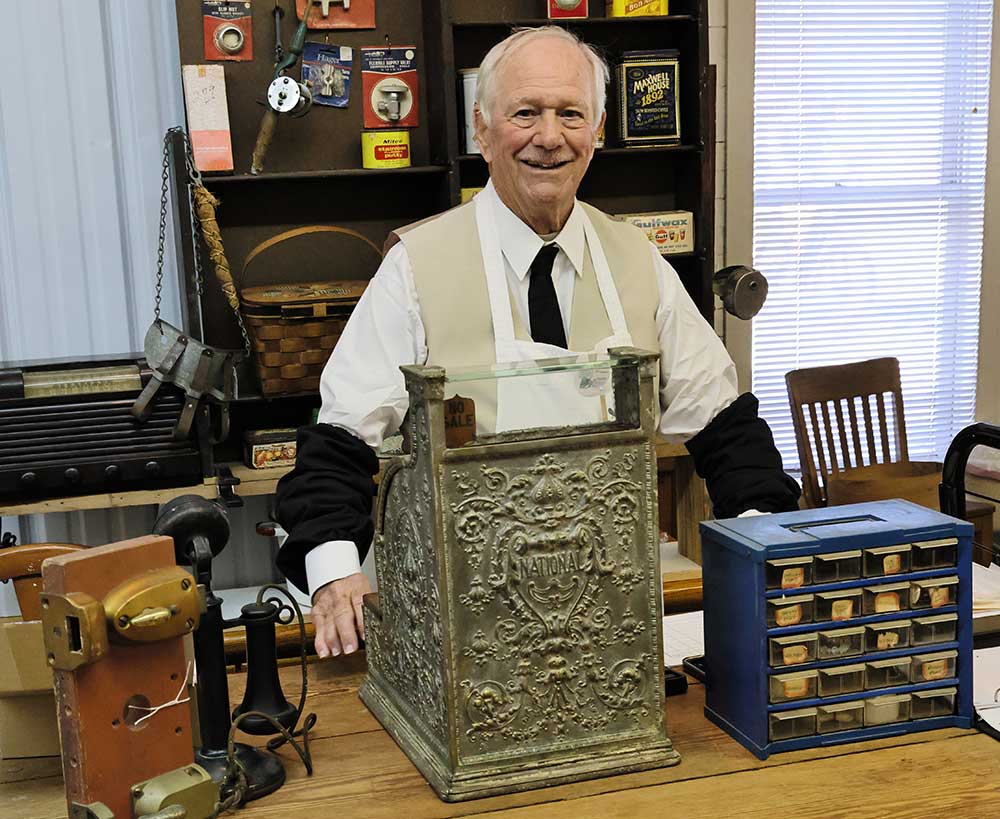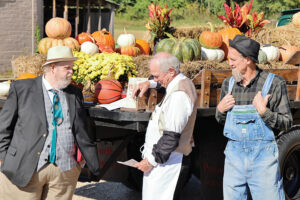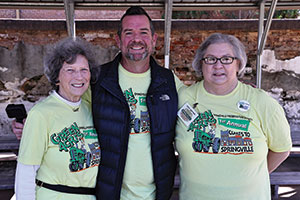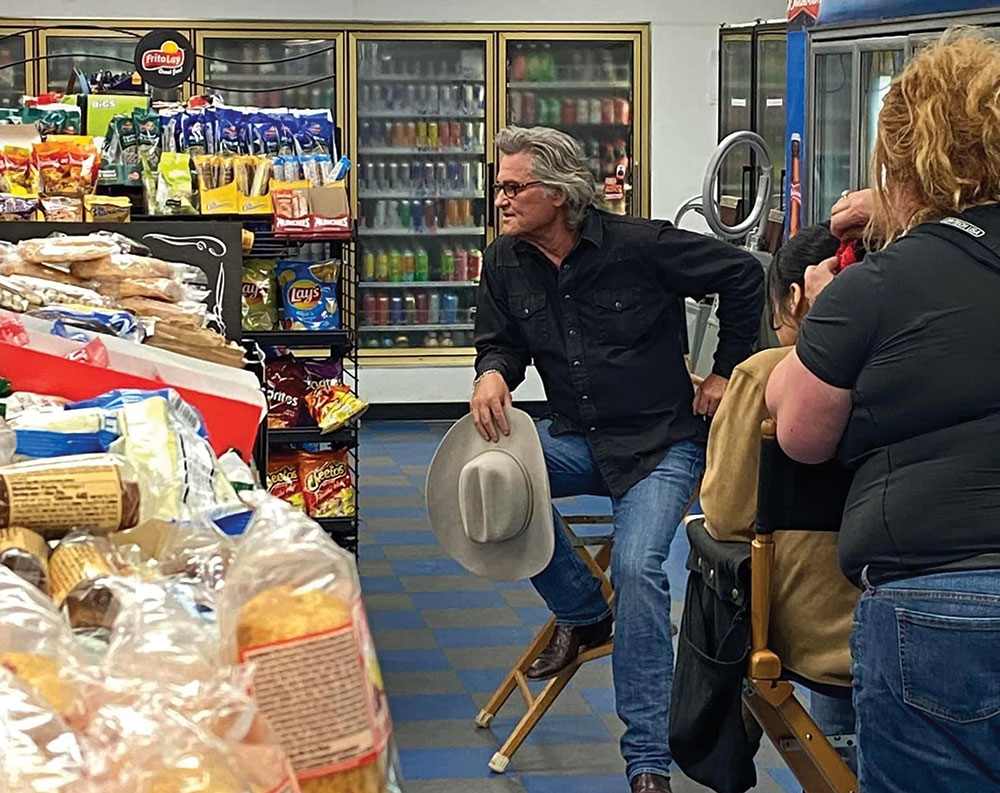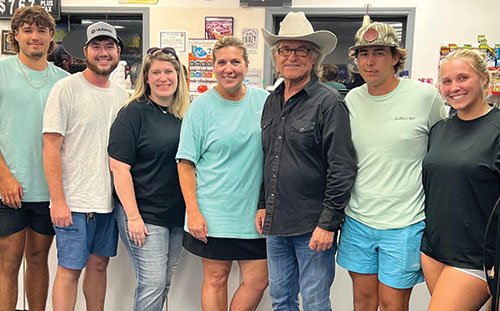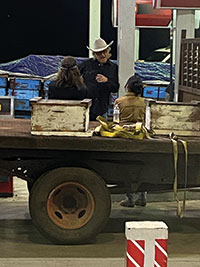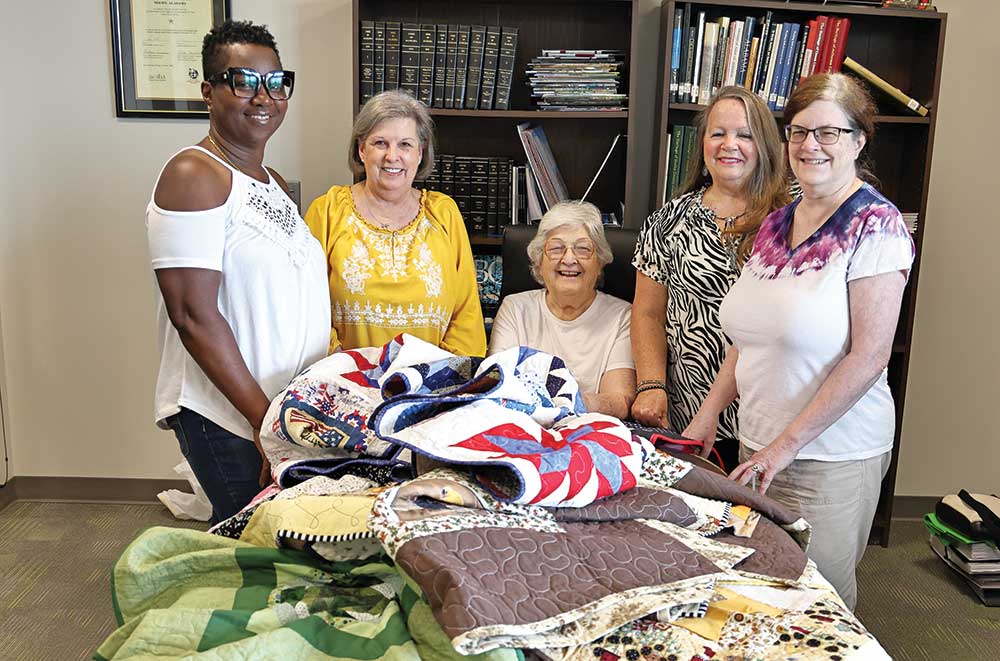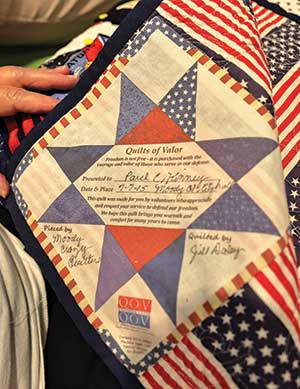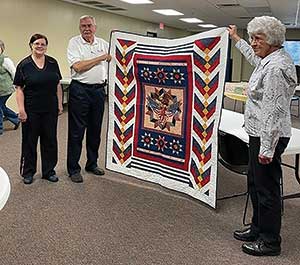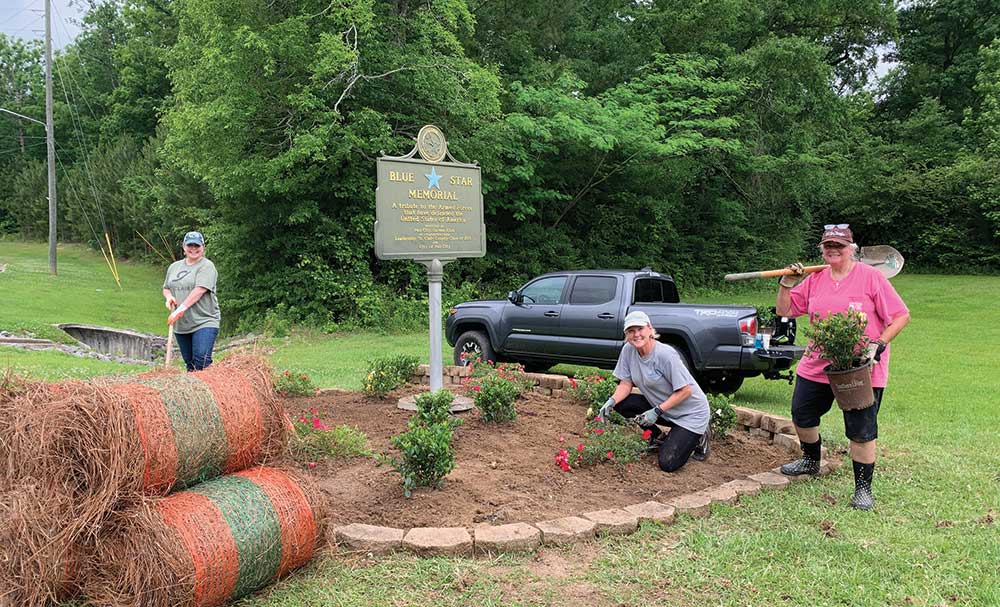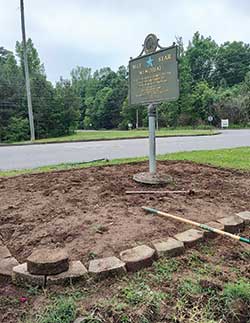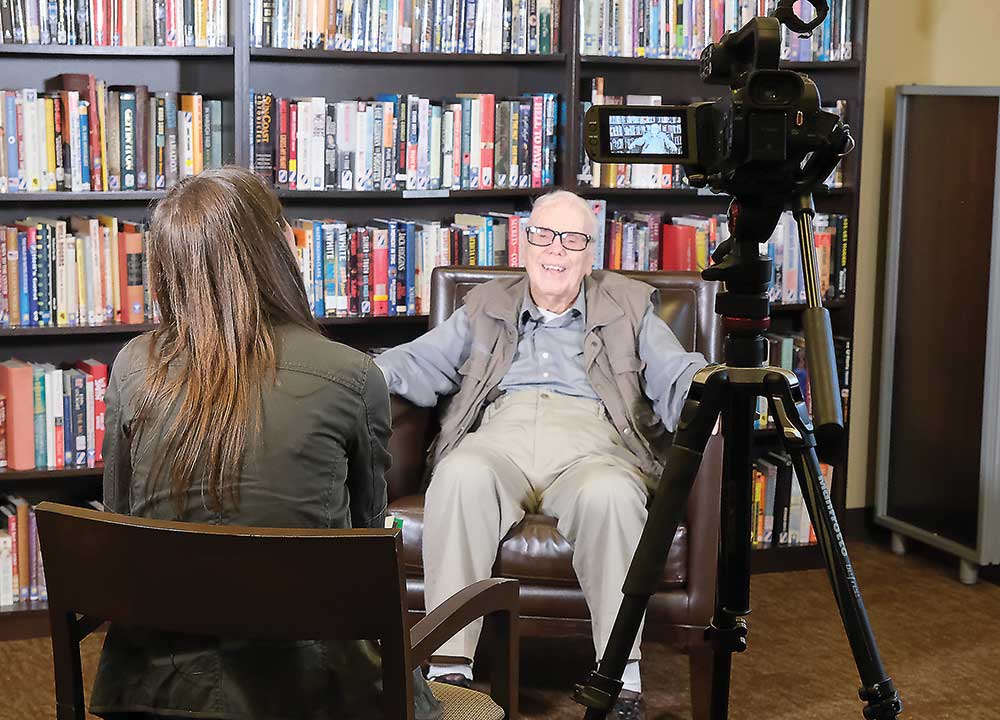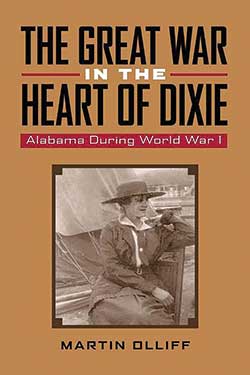A labor of love for the past
Story by Paul South
Photos by Richard Rybka
Love comes in many forms.
A dozen roses.
A whispered lullaby
A perfumed letter.
Driving a nail or sweating over a grant application.
But the love the Springville Preservation Society holds for its historic hometown can be seen in preserving the iconic Rock School, restoring the Presbyterian Church, the Springville Museum and historic homes dotting the city’s landscape.
It can even be seen in celebrating the life of Springville natives Hank Patterson and St. Clair County native Pat Buttram, stars of the zany 1960s sitcom, Green Acres.
Patterson and Buttram have passed on, but their lives and the TV show are celebrated in Springville with “Green Acres Day”, featuring a doppelganger of the precocious porker pet Arnold Ziffel, the “son” of Patterson’s character.
The society, about 100 members strong, raises money for its all-volunteer labor through grants and membership fees, ice cream socials and appropriate for this season, a festival of Christmas trees.
For Carol Waid, the reason for the tireless work is simple. She serves on the society board, and her husband Frank, an Air Force veteran, is its chairman.
After his military service ended, the couple came home.
“We were born and raised here,” Carol Waid says. “We love this little town. It’s just a wonderful community.”
The Preservation Society has poured its heart into restoring the Old Rock School. Built in 1902 as a general store, it became a center of learning for generations of Springville children. The Preservation Society’s efforts to restore the school have earned recognition from the State of Alabama. The building was added to the National Register of Historic Places in 1983.
The Preservation Society started in 1992. Carol’s father, Marcus Pearson, was among its founders.
The school, the preserved church and other projects are far more than bricks and mortar, sweat and maybe a few tears for members of the organization. They speak volumes about the people who call Springville home, whether those folks are newcomers, or part of a long lineage of local families.
“It’s a real hometown feel,” she says. “Neighbors helping neighbors. You always have a friend.”
While it works to preserve the city’s cherished heritage, the society also strives to help Springville strike a balance between growth and preserving the past.
“That’s one of the appeals of Springville is its history,” she adds. “People love the history of the town, and the old buildings are just full of history. We want to preserve that.”
Frank Waid says that while growth is inevitable, they want residents – old and new – to celebrate and preserve the past.
“You can’t stop growth,” he says. “But we want people coming into the town to know about the town and its history. That’s why we have things like the home tour. We have tour guides who tell the stories of the old homes.
“As people come into town, we want them to know about the town so that they feel like they’re a part of it, and they’re not just moving in. They feel right at home.”
Not only is the society restoring buildings, but it’s building relationships. Ice Cream Sundays at the Rock School are popular events where friendships form.
It’s easy to think that only older people are in love with the older buildings in town. But when Frank Waid strolls downtown to grab a cup of coffee at Nichols Nook, he sees a different, diverse demographic.
“It’s full of people and it’s full of people of all ages,” Waid says. “There are a lot of young people and families – mothers pushing strollers coming in, and you just feel at home right off the bat.”
And younger people are embracing the Springville Preservation Society’s efforts. In October, local fourth graders from Springville Elementary flocked to the museum – some with their parents in tow – to explore and find joy in small things, like pecking on an antique manual typewriter.
By the way, the school was designated a “School of Excellence” by the state of Alabama in the state’s bicentennial year.
Students from Springville Elementary restored a first-grade classroom at the Rock School, where teacher Nina Crandall taught for generations.
Board member Tami Spires, a counselor at Springville Elementary and a member of the society board, spearheaded the school’s efforts, not only at the Rock School, but in other winning efforts, like the Blue-Ribbon designation.
The society is also converting the manse at the old Presbyterian Church into a city archive, known as the Springville Heritage Center, where genealogy and family histories can be researched. The society also hopes to create a digital oral history archive.
As committed as it is to history, the Springville Preservation Society also makes new memories for this and future generations. Remember Arnold, Jr., the star of Green Acres Day?
“We had a huge crowd, and it was a lot of fun,” Frank Waid says. “People are going to say, ‘I saw Arnold run wild.’”
Fittingly, Spires looked back to the construction of the Rock School when early 20th century residents hauled wagonloads of rock to the top of the city’s highest point to build a beacon of learning for future generations. Their ethic survives in Springville to this day.
“They spent a lot of their own money so that the town could have something that they were proud of,” Spires says. “We need to keep that to teach people that this is the way we do things. Friends help friends.
“That’s what a community does,” she adds. “We come together for a common good and do what needs to be done for one another.”
But at the end of the day, the Preservation Society’s driving force hasn’t changed from that of their forbearers, who mined rocks to build a school for future generations. Spires put it simply:
“We just love Springville.”
Editor’s Note: Individual memberships for the Springville Preservation Society are $10 and $15 for families. Contributions can be sent to P.O. Box 92, Springville, AL 35146. The society meets on the fourth Thursday of each month at 6:30 p.m. on the second floor of the Masonic Lodge on Main Street. For more information, write info@springvillepreservation.org.











